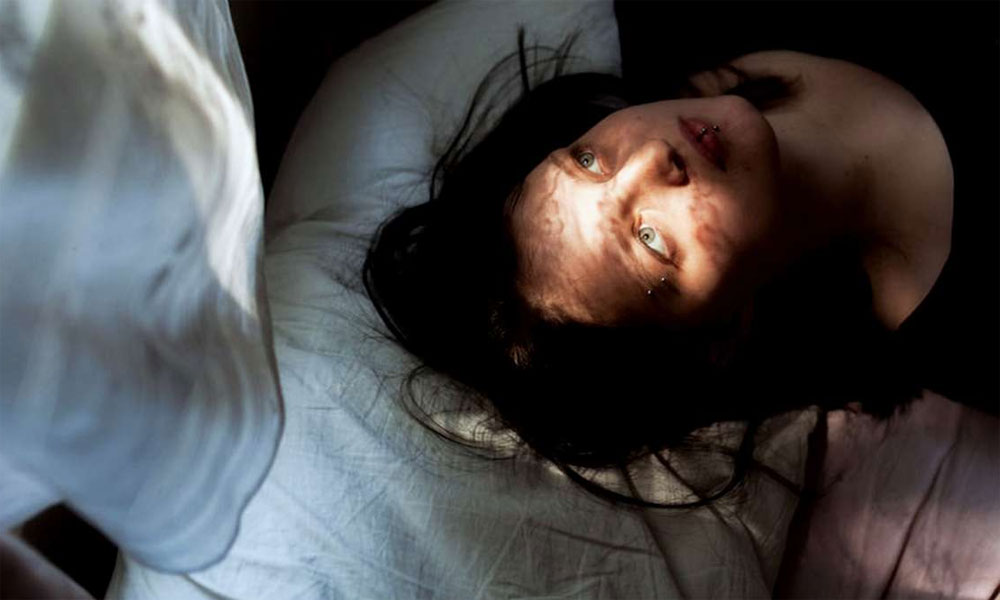
Sleep paralysis is a sense of being acutely aware, however unable to maneuver. It happens when an individual passes between phases of wakefulness and sleep. – WebMD
Of all of the bizarre sensations that one can expertise, maybe there’s nothing stranger than not having the ability to transfer; extra particularly, not having the ability to transfer whereas being consciously conscious of 1’s environment.
If You’ve Ever Awakened At Night Unable To Move, Here’s What It Means…
Sleep paralysis is an odd and probably scary phenomenon. Essentially, the particular person experiencing sleep paralysis can’t transfer any a part of their physique, however but stays acutely aware.
Those that have sleep paralyses are sometimes terrified – an comprehensible response from not having voluntary management over one’s actions.
Fortunately, this can be a comparatively frequent prevalence and doesn’t trigger any bodily hurt to the physique. Sleep paralysis occurs throughout one among two phases -“hypnagogic” and “hypnopompic.” Hypnagogic sleep paralysis happens earlier than falling asleep, whereas hypnopompic sleep paralysis happens as one wakes from REM sleep.
As we go to sleep, our physique turns into deeply relaxed whereas our minds concurrently grow to be much less conscious. However, when hypnagogic sleep paralysis happens, the thoughts stays conscious whereas the physique achieves an involuntary state of rest.
The particular person then realises that they’re unable to maneuver regardless of their efforts, usually resulting in emotions of panic.
During REM (speedy eye motion) sleep, our muscle tissue are paralysed in order that we don’t act out our desires. When one experiences hypnopompic sleep paralysis, a sure a part of the brain wakes sooner.
This wakeful state doesn’t have an effect on the a part of the brain chargeable for REM paralysis, nevertheless. The result’s a sure diploma of wakefulness and no voluntary management over muscle tissue.
Who does sleep paralysis occur to?
Some individuals are lucky sufficient to expertise this case simply a few times of their life, if ever. Unfortunately, some individuals expertise this phenomenon usually – even a number of occasions every week.
A study undertaken at Penn State University found that roughly 8 p.c of the inhabitants has frequent points with sleep paralysis. Individuals with psychological issues, similar to anxiousness and despair, are extra liable to frequent episodes of sleep paralysis.
People affected by sleep apnea; individuals on particular varieties of remedy, and people with an underlying sleep situation might expertise extra frequent episodes of sleep paralysis.
Here is the total checklist of danger components, WebMD:
- Lack of sleep
- Frequent adjustments in sleep schedule
- Mental circumstances, similar to stress or bipolar dysfunction
- Sleeping on the again
- Sleep issues similar to narcolepsy or nighttime leg cramps
- Certain varieties of remedy, similar to these with ADHD
- Substance abuse
What are the signs?
Under virtually each circumstance, people that have sleep paralysis is unable to maneuver or converse from just a few seconds to some minutes.
As talked about, this normally happens throughout the preliminary phases of falling asleep and virtually instantly after waking up.
While sleep paralysis usually requires no sort of remedy, a physician might additional inquire into different areas that pertain to sleep well being. Should sleep circumstances linger or worsen, the medical skilled might then consult with a sleep specialist.
What are the therapies for sleep paralysis?
Because this sensation happens naturally, there’s typically no prescribed remedy. However, if a medical skilled detects an underlying situation within the strategy of prognosis, a remedy routine could also be so as. Such prescribed therapies are:
- Implementation of a sleeping schedule
- Prescription for an anti-depressant
- Referral to a psychological well being skilled
- Referral to a sleep specialist
- Treatment of any underlying sleep issues
- Prescription for sleeping aids
Often occasions, making enough sleep a precedence whereas limiting pointless stress (particularly earlier than bedtime) will suffice as a deterrent to sleep paralysis.
Because of the enigmatic nature of the situation, the effectiveness of formal and casual therapies to alleviate it’s ambiguous at finest.
As a rule of thumb, one episode doesn’t normally mandate a visit to the physician’s office. Health professionals suggest that these with uncommon episodes of sleep paralysis pay specific consideration to their sleeping habits, as sleep deprivation virtually assuredly will increase the probability of an episode.
Other suggestions embrace avoiding or severely proscribing alcohol/medicine, nicotine and caffeine.
It’s additionally advisable to maintain digital units out of the bed room with a purpose to set up wholesome sleep patterns.